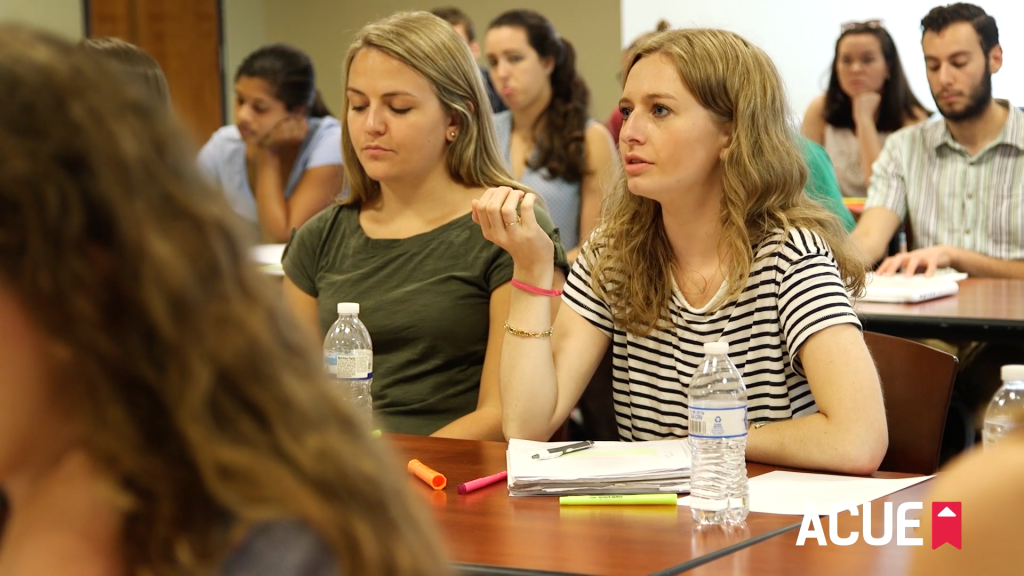
News Roundup: Evidence-Based Teaching Practices, Your “A” Students
A new study suggests that preparation in evidence-based teaching practices benefits graduate students, and an instructor reminds faculty not to neglect their “A” students.
| Sign up for The ‘Q’ Newsletter for weekly news and insights. |
The Graduate Training Trade-Off ‘Myth’
A new study suggests that preparation in evidence-based teaching practices may benefit graduate students’ teaching skills, increasing both their confidence and preparedness for careers in academia. (Inside Higher Ed)
Small Changes, Large Rewards: How Individualized Emails Increase Classroom Performance
In an attempt to engage her “forgotten” students, Zoë Cohen sent personalized emails to students who failed the first exam in her course. She reminded them it was still early enough to turn their grades around, suggested ways of improving, and asked whether they knew why they hadn’t performed well. Students were grateful for the support, and Cohen saw a noticeable improvement in their grades after this intervention. (The Evolllution)
Teaching Techniques: Reflections on AAC&U’s Webinar
Bonni Stachowiak offers her takeaways from the AAC&U webinar “Teaching Techniques to Improve Learning and Ensure Classroom Success.” José Bowen, for example, spoke about the importance of finding an entry point for students to tackle content in their instructors’ areas of expertise. The presenters also suggested specific ways to engage students in content, such as Elizabeth Barkley’s idea of having students keep contemporary issues journals. (Teaching in Higher Ed)
Make Wikipedia Even Better (and Support a Great Cause!)
As part of an effort to improve the digital environment and prevent the spread of fake news, Mike Caulfield has announced a project urging students and faculty to contribute 1,000 articles on significant English-language local newspapers to Wikipedia. Lee Skallerup Bessette suggests that other faculty consider incorporating a digital literacy assignment into their own courses. (ProfHacker)
The Dangers of the “Silent A”
Even “A” students still have plenty to learn, Adam Kotsko writes, and not providing substantive feedback to help them improve could result in their stagnation as learners. He suggests supporting both stronger and weaker students by zeroing in on one or two overarching areas for improvement and providing support to all learners. (Inside Higher Ed)
Finding the Right Atmosphere for Learning
An atmosphere that emphasizes freedom and agency enables students to learn better, John Warner writes. He continually assesses his course atmosphere by asking students questions such as “Do you find the project you’re working on interesting?” and “Do you have enough time and support to achieve what you’re trying to accomplish?” (Just Visiting)
Partner News
Arizona State University: Effective teaching course a game changer for College of Health Solutions faculty (ASU Now)
Kansas State University: K-State awards scholarships to online students (The Hutchinson News)
Miami Dade College/Broward College: Miami Dade, Broward Colleges In Running For Prestigious National Prize — And A Big Check (WLRN)

